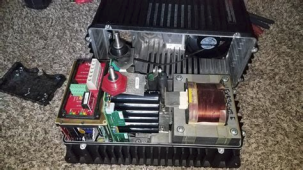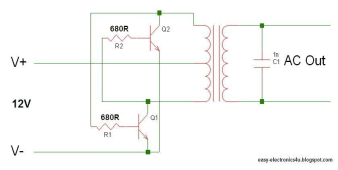Hi,
I am interested in design recommendations for an off-grid system optimized for energy efficiency and components longevity.
With solar panels, it's somewhat easy - they already keep up their efficiency 20+ years and if going with a popular brand, you can get a warranty for a long period.
With battery chemistry, it's also somewhat easy - LTO which would allow me to cycle them once a day for 30 years. Not sure if longer is possible with less cycles as most LTOs I've seen have at most 30 years shelf life.
My first question is about eliminating conversions and components wherever possible.
For example, I have a 15W mini PC that takes 12VDC up to 1.5A. If I want to run it off of solar, it makes no sense to go solar -> charge controller -> battery (other than 12V) -> converter -> PC because of the compounding efficiency loss that will occur at every conversion.
As far as I know, it's not possible to go solar -> PC directly, so I assume solar -> charge controller -> PC is the shortest path to take.
This would not allow me to run it in the dark though, so is it possible to have a hybrid solution that skips the battery (to save cycles and efficiency losses) when panels provide enough power while taking from the battery when panels do not? Or one that takes the excess energy of the solar panels during a sunny day and puts it in the battery? How does such hybrid solution look like and how much does it enlarge the path and thus adds efficiency losses? Does it put more strain on any of the components, making them last fewer years?
I would like to run more small loads (chest fridge, lights, monitor, etc.) on the 12VDC system so I have to think about a house design focused around wiring (loads close to batteries close to solar) to minimize wire size/loss/cost.
If I want to run a big load, like 1kW on 12VDC, a cable length of 1 meter would lead to a 16% loss which makes it inefficient, compared to 100W/12V at 10 meters = 3%.
So my second question is: does it make sense to have multiple systems in a house taking into account my focus - longevity and efficiency?
So my 1kW or more load(s) (like an electric stove, washing machine, water heater) would be on a second battery system that is 48V and has an inverter. A second solar array too?
Assuming I use those loads when the sun is shining, can the same system as the 12V one be applied - skip the battery if possible (or mix battery + solar), charge the battery with extra energy if available? Some examples:
Speaking of the inverter, what's the lifespan of the inverter, convertor and charge controllers? Is 20+ years common? What shortens and prolongs their lifespans?
One thing that's not clear to me is if, for example, oversizing the solar for the first system would lead to greater losses? If I have 1kW of solar + 3kWh of 12V battery and I only use 300W of loads for 6 hours mostly during the day, what are the losses occurring and how does panel wiring (or voltage) change that?
I am not an expert so correct me if some of my terms are wrong or I am missing something important.
I had these ideas for some time and decided to ask here after Will made the video about the solar -> EG4 heat pump AC
a few days ago which I really liked because it skips most components (although it probably just has some sort of charge controller inside the heat pump)
Of course, those all decisions will be supplemented by redundancy and ways to reduce the general electric load like high insulation, maybe geothermal, propane, etc. but I am not sure how relevant that is.
A bit of a long post, sorry for that, but I want to hear your opinions.
I am interested in design recommendations for an off-grid system optimized for energy efficiency and components longevity.
With solar panels, it's somewhat easy - they already keep up their efficiency 20+ years and if going with a popular brand, you can get a warranty for a long period.
With battery chemistry, it's also somewhat easy - LTO which would allow me to cycle them once a day for 30 years. Not sure if longer is possible with less cycles as most LTOs I've seen have at most 30 years shelf life.
My first question is about eliminating conversions and components wherever possible.
For example, I have a 15W mini PC that takes 12VDC up to 1.5A. If I want to run it off of solar, it makes no sense to go solar -> charge controller -> battery (other than 12V) -> converter -> PC because of the compounding efficiency loss that will occur at every conversion.
As far as I know, it's not possible to go solar -> PC directly, so I assume solar -> charge controller -> PC is the shortest path to take.
This would not allow me to run it in the dark though, so is it possible to have a hybrid solution that skips the battery (to save cycles and efficiency losses) when panels provide enough power while taking from the battery when panels do not? Or one that takes the excess energy of the solar panels during a sunny day and puts it in the battery? How does such hybrid solution look like and how much does it enlarge the path and thus adds efficiency losses? Does it put more strain on any of the components, making them last fewer years?
I would like to run more small loads (chest fridge, lights, monitor, etc.) on the 12VDC system so I have to think about a house design focused around wiring (loads close to batteries close to solar) to minimize wire size/loss/cost.
If I want to run a big load, like 1kW on 12VDC, a cable length of 1 meter would lead to a 16% loss which makes it inefficient, compared to 100W/12V at 10 meters = 3%.
So my second question is: does it make sense to have multiple systems in a house taking into account my focus - longevity and efficiency?
So my 1kW or more load(s) (like an electric stove, washing machine, water heater) would be on a second battery system that is 48V and has an inverter. A second solar array too?
Assuming I use those loads when the sun is shining, can the same system as the 12V one be applied - skip the battery if possible (or mix battery + solar), charge the battery with extra energy if available? Some examples:
- 3kW solar, 5kW load, 5kWh battery = 3kW from solar + 2kW from battery
- 3kW solar, 1kW load, 5kWh battery = 1kW from solar + 2kW to battery
- evening/no sun, 2kW load, 5kWh battery = 2kWh from battery
Speaking of the inverter, what's the lifespan of the inverter, convertor and charge controllers? Is 20+ years common? What shortens and prolongs their lifespans?
One thing that's not clear to me is if, for example, oversizing the solar for the first system would lead to greater losses? If I have 1kW of solar + 3kWh of 12V battery and I only use 300W of loads for 6 hours mostly during the day, what are the losses occurring and how does panel wiring (or voltage) change that?
I am not an expert so correct me if some of my terms are wrong or I am missing something important.
I had these ideas for some time and decided to ask here after Will made the video about the solar -> EG4 heat pump AC
Of course, those all decisions will be supplemented by redundancy and ways to reduce the general electric load like high insulation, maybe geothermal, propane, etc. but I am not sure how relevant that is.
A bit of a long post, sorry for that, but I want to hear your opinions.




